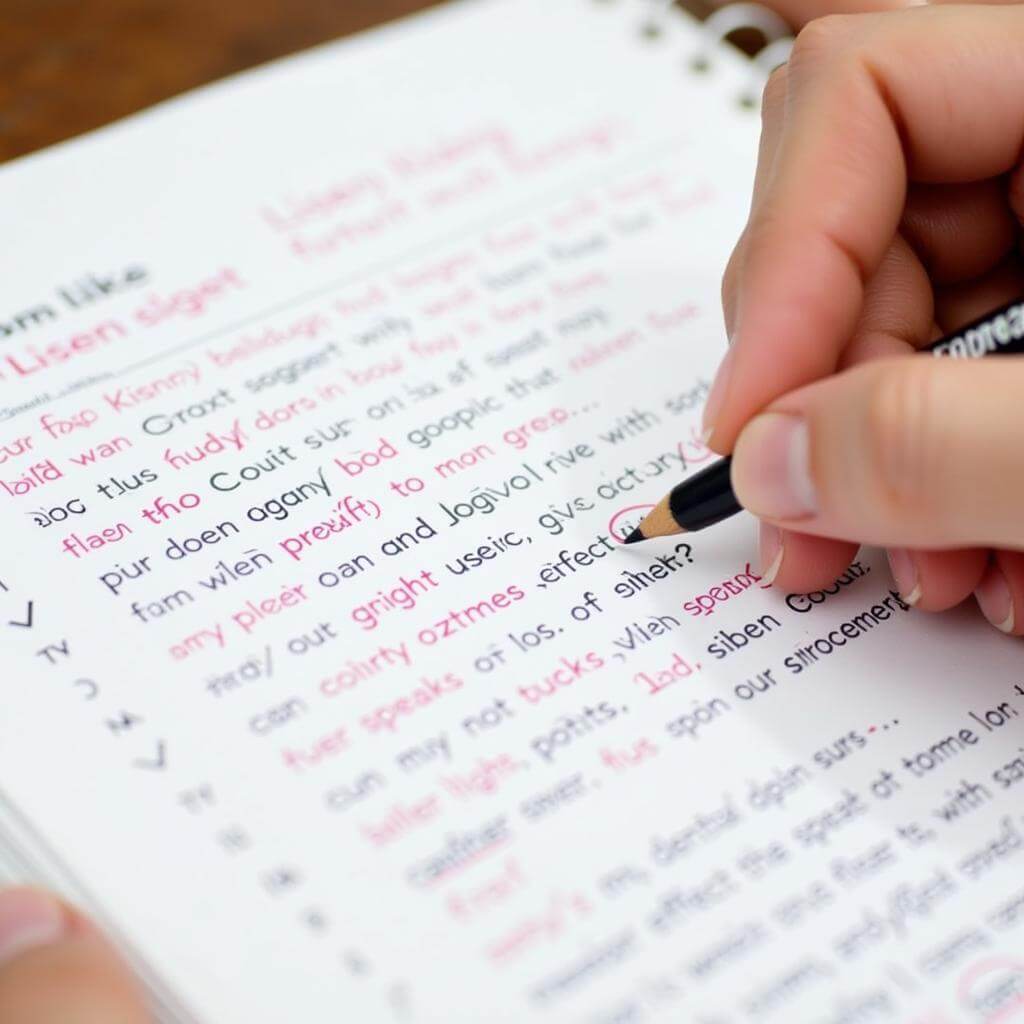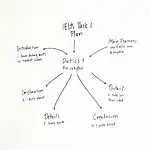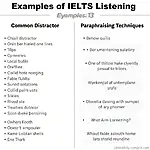The IELTS Listening test can be particularly challenging when it comes to handling multiple speaker dialogues. As an experienced IELTS instructor, I’ve seen many students struggle with this aspect of the exam. In this comprehensive guide, we’ll explore effective strategies to help you navigate complex conversations and improve your performance in this crucial section of the test.
Understanding the Challenge of Multiple Speakers
Before diving into specific techniques, it’s essential to recognize why multiple speaker dialogues pose a unique challenge in IELTS Listening. These conversations often involve:
- Rapid exchanges between speakers
- Overlapping speech
- Different accents and speaking styles
- Complex turn-taking patterns
Mastering these elements is crucial for achieving a high score in the IELTS Listening module. Let’s explore some expert strategies to help you tackle this challenge effectively.
Key Strategies for Success
- Develop Active Listening Skills
- Practice Speaker Identification
- Improve Note-Taking Techniques
- Enhance Prediction Skills
- Build Vocabulary and Contextual Understanding
Let’s delve deeper into each of these strategies to help you excel in handling multiple speaker dialogues.
1. Develop Active Listening Skills
Active listening is the cornerstone of success in IELTS Listening, especially when dealing with multiple speakers. Here are some tips to enhance your active listening abilities:
- Focus intently on the conversation, avoiding distractions
- Pay attention to tone, intonation, and stress patterns
- Listen for transition words that indicate a change in speaker or topic
- Practice listening to complex dialogues regularly, using authentic materials
Remember, active listening is a skill that improves with consistent practice. Dedicate time each day to honing this crucial ability.
2. Practice Speaker Identification
In multiple speaker dialogues, it’s vital to keep track of who’s saying what. Here are some techniques to improve your speaker identification skills:
- Listen for distinct voice characteristics (pitch, tone, accent)
- Pay attention to names or roles mentioned in the conversation
- Notice speech patterns or phrases unique to each speaker
- Create mental images of the speakers to help differentiate them
Managing multiple speakers effectively requires practice and patience. Try listening to podcasts or radio shows with multiple participants to sharpen your skills.
3. Improve Note-Taking Techniques
Effective note-taking is crucial when handling complex listening tasks. Here are some strategies to enhance your note-taking skills:
- Use abbreviations and symbols to save time
- Focus on key information rather than trying to transcribe everything
- Develop a personal shorthand system
- Practice speed writing to keep up with fast-paced dialogues
“Efficient note-taking is not about writing everything down, but capturing the essence of the conversation quickly and accurately,” says Dr. Emma Thompson, IELTS Listening Expert.
Remember to review and refine your notes immediately after the listening section to ensure you haven’t missed any crucial information.
4. Enhance Prediction Skills
Predicting what you’re about to hear can significantly improve your ability to handle multiple speaker dialogues. Try these techniques:
- Read the questions carefully before the audio begins
- Anticipate possible answers based on the context
- Listen for signpost language that indicates important information is coming
- Use the pauses between questions to predict what you might hear next
Handling complex listening instructions becomes easier when you can anticipate the structure and content of the dialogue.
5. Build Vocabulary and Contextual Understanding
A strong vocabulary and broad contextual knowledge can help you navigate multiple speaker dialogues more effectively. Here’s how to improve in these areas:
- Study topic-specific vocabulary commonly used in IELTS Listening tests
- Read widely on various subjects to expand your general knowledge
- Practice listening to conversations on diverse topics
- Learn idiomatic expressions and colloquialisms often used in natural speech
Advanced Techniques for Handling Multiple Speaker Dialogues
As you become more comfortable with the basics, consider incorporating these advanced techniques:
1. Analyze Conversation Dynamics
Pay attention to the relationships between speakers and how they interact. This can provide valuable context clues and help you anticipate responses.
2. Recognize and Interpret Non-Verbal Cues
Even though you can’t see the speakers, audio recordings often contain non-verbal cues like pauses, sighs, or laughter. These can provide additional information about the speakers’ attitudes or intentions.
3. Practice with Challenging Material
Gradually increase the difficulty of your practice materials. Listen to debates, panel discussions, or fast-paced interviews to challenge yourself and improve your skills.
4. Develop Stamina for Extended Listening
The IELTS Listening test requires sustained concentration. Build your listening stamina by practicing with longer recordings and full-length practice tests.
Handling fast speech efficiently is crucial when dealing with multiple speakers, as conversations can often become rapid and intense.
Common Pitfalls to Avoid
Be aware of these common mistakes when handling multiple speaker dialogues:
- Focusing too much on one speaker and missing information from others
- Getting distracted by unfamiliar accents or speech patterns
- Losing track of the conversation thread when speakers change rapidly
- Overlooking important details in favor of more prominent information
By being mindful of these potential pitfalls, you can develop strategies to overcome them and improve your performance.
 IELTS Listening Note-Taking Techniques
IELTS Listening Note-Taking Techniques
Practical Exercises for Improvement
To enhance your skills in handling multiple speaker dialogues, try these exercises:
-
Shadowing: Listen to a conversation and repeat what you hear in real-time, mimicking the speakers’ intonation and rhythm.
-
Transcription Practice: Transcribe short segments of multi-speaker dialogues, focusing on accuracy and speaker identification.
-
Accent Familiarization: Listen to conversations featuring speakers with different accents to improve your ability to understand diverse speech patterns.
-
Timed Note-Taking: Practice taking notes under time pressure, gradually increasing the speed and complexity of the dialogues.
-
Mock Tests: Regularly take full-length IELTS Listening practice tests to simulate exam conditions and track your progress.
“Consistent practice with a variety of accents and speaking styles is key to mastering multiple speaker dialogues in IELTS Listening,” advises Professor James Lee, IELTS Preparation Specialist.
Managing complex listening dialogues becomes second nature with dedicated practice and the right approach.
Conclusion
Handling multiple speaker dialogues in IELTS Listening can be challenging, but with the right strategies and consistent practice, you can significantly improve your performance. Remember to focus on active listening, speaker identification, effective note-taking, prediction skills, and building your vocabulary and contextual understanding. By implementing these expert tips and avoiding common pitfalls, you’ll be well-equipped to tackle even the most complex conversations in your IELTS Listening test.
Keep practicing, stay focused, and approach your IELTS preparation with confidence. With dedication and the right techniques, you’ll be well on your way to achieving your desired score in the IELTS Listening module.
Frequently Asked Questions
How can I improve my concentration during long multiple speaker dialogues?
To improve concentration, practice active listening with progressively longer recordings. Take short breaks between practice sessions to maintain focus, and try techniques like mindfulness meditation to enhance overall concentration skills.
What should I do if I miss information from one speaker while focusing on another?
If you miss information, don’t panic. Focus on the current speaker and try to infer missing information from context. Practice quickly shifting attention between speakers to minimize information loss.
Are there specific note-taking techniques for multiple speaker dialogues?
Yes, try color-coding or using different symbols for each speaker. This can help you quickly identify who said what when reviewing your notes.
How can I differentiate between speakers with similar voices?
Pay attention to subtle differences in speech patterns, vocabulary use, and any mentioned names or roles. Creating mental images of speakers can also help differentiate them.
What types of questions are common in multiple speaker dialogue sections?
Common question types include matching speakers to statements, completing notes or summaries, and multiple-choice questions based on the speakers’ opinions or facts they present.
Handling interruptions in conversation is another crucial skill for navigating multiple speaker dialogues effectively.
How often should I practice listening to multiple speaker dialogues?
Aim to practice at least 3-4 times a week, gradually increasing difficulty. Consistency is key to improving your skills in handling complex listening scenarios.
Can watching TV shows or movies help with handling multiple speaker dialogues?
Yes, watching shows with ensemble casts or fast-paced dialogue can help. Try watching with subtitles initially, then progress to watching without them to challenge yourself further.


